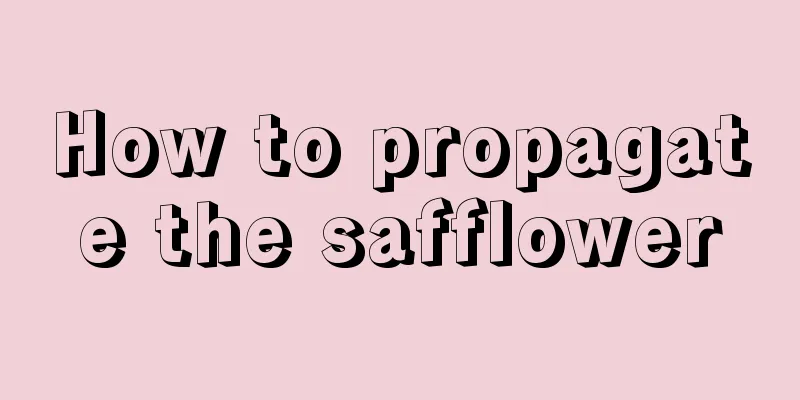How to care for jasmine correctly

|
Jasmine is a traditional famous flower in China. Its color is pure white, and its fragrance is strong, fresh and long-lasting. It is known as "the best fragrance in the world" and can be regarded as an excellent potted flower, and is deeply loved by people. So what is the correct way to care for jasmine? Let’s learn more about it below. 1. Soil selection Jasmine needs loose, well-breathed soil. Suitable soil can be prepared by mixing garden soil, compost and river sand. The pH value of the soil should be between 5.5 and 6.5, and slightly acidic soil is more suitable for the growth of jasmine. 2. Light and temperature management Jasmine likes sunlight and is not shade-tolerant. It also likes warm and humid climate and is not cold-tolerant. The suitable temperature for its growth is 25-35℃. Usually, jasmine will have green leaves, thick branches, many flower buds and strong fragrance only when there is plenty of sunlight and high temperature. 3. Watering tips Watering should be adjusted according to seasonal and climate changes. In spring and autumn, water the plants every 2 to 3 days, in summer, water them once a day, and in winter, reduce the frequency of watering and just keep the soil slightly moist. When watering, you should pay attention to follow the principle of waiting until the soil surface is dry before watering to avoid long-term moisture that may cause root rot. 4. Reasonable fertilization Jasmine requires proper fertilizer to promote growth. Generally, fertilizer can be applied once every half a month, mainly with phosphorus and potassium fertilizers, and appropriately with nitrogen fertilizers, which can promote the growth and flowering of jasmine. Be careful not to over-fertilize to avoid harming the jasmine. 5. Proper pruning Proper pruning of jasmine is also a key part of its maintenance. Pruning is usually done in spring . It is necessary to prune overgrown branches, diseased branches, dead branches and old branches. Overly dense branches and leaves should also be pruned to promote the growth of jasmine. In addition, after the flowers have bloomed, the remaining flowers should be cut off in time to save nutrients and promote the germination of new buds on the side branches. 6. Pest and disease control Common insect pests of lilies include red spider mites and scale insects, and common diseases include white rot. Among them, insect pests can be controlled with a concentration of 1000-2000 times of 25% triazotin wettable powder ; for white rot, the diseased plant remains can be cleaned up in time and destroyed in a centralized manner. In general, when growing jasmine, as long as you do the above management work and provide suitable environmental conditions, such as temperature, humidity, light, etc., you can make the jasmine thrive and bloom beautiful flowers.
|
<<: Which month is the best to plant carrots?
>>: Rose cultivation methods and precautions
Recommend
What is the best fertilizer for cherry trees?
Cherry tree fertilization time 1. It is best to f...
How often should you change the soil for succulents?
Need to change soil When growing succulents, chan...
Pothos and Clivia...Put some of them in the pot, the leaves will be shiny black and they will bloom like crazy!
Clivia--Walnut Walnuts are good for growing flowe...
What to do if the money tree has root rot
Reasons for root rot in money tree Improper water...
What to do if the primroses wither
Primroses wither due to lack of water Insufficien...
How to raise cat milk
1. Introduction Rhamnaceae is a deciduous shrub o...
When is the best time to plant dahlias
The right time to sow dahlias Dahlia is a perenni...
How to Grow Strawberries in Pots
1. Prepare the soil When planting strawberry pott...
The difference between Pretty in Pink and Debbie
What is Pretty in Pink Pink Lady is a succulent p...
Planting time and management of Pueraria lobata, can it be harvested in the same year?
1. Planting time The most suitable time to plant ...
How to grow osmanthus in summer
1. Lighting When growing osmanthus, place it in a...
When is the best time to plant watermelons?
Watermelon is widely grown in my country and has ...
What fertilizer is best for Anthurium
1. Commonly used fertilizer types In fact, as lon...
He made the flowers bloom in just one month. How did he do it?
Kalanchoe Kalanchoe can be propagated by leaf cut...
Difference Between Sage and Rosemary
The difference between sage and rosemary Although...









